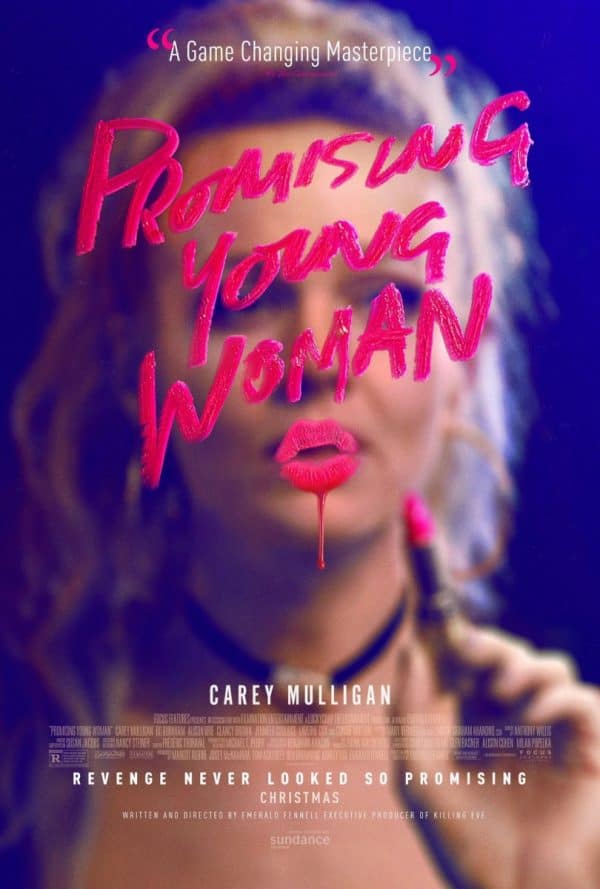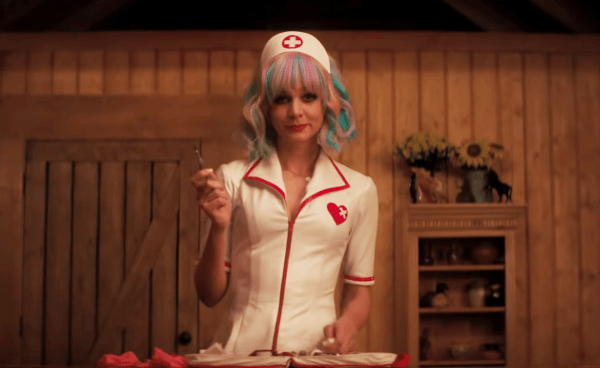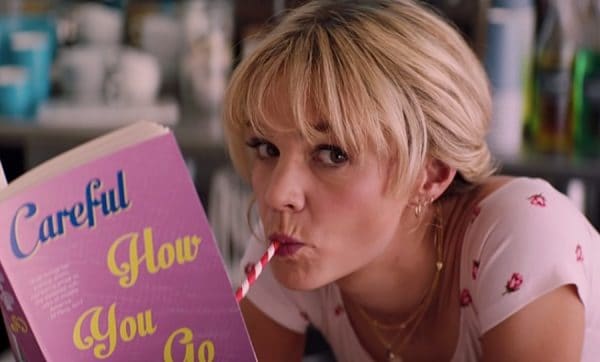Michael T. Perry is a veteran of more than thirty projects spanning over thirty years. He has worked on everything from Sweet Valley High through to It Follows, continuing to leave his own indelible mark in both film and television. With Promising Young Woman, for which Michael has just received a Director’s Guild Award nomination, he creates a world in which complicit characters cling to each other searching for redemption. Michael recently took time out to talk to Martin Carr about his involvement and what made the project so intriguing.

What were the creative advantages of having a writer-director on this project?
I have worked with lots of writer directors and Emerald is definitely amongst the best of them. When it comes time to direct the writer leaves and she puts her other hat on, meaning that creatively you can talk intention. All of her thought processes during the writing stage and any subsequent back stories are all available. A freedom which is not always there when it is simply a director for hire.
For me the use of power is a central theme in this film, how did you go about addressing that through the production design?
Where my influence over that theme was most strongly felt I think, is in the Dean’s office and where Cassie got killed. Both locations are set apart by their use colour, especially green which wasn’t present anywhere else in the movie. To me the Dean represented society, power and all the problems which were exposed. That second location personifies power and shares a common trait with the Dean’s office in being overtly masculine spaces.
How did any initial creative conversations with Emerald feed into your design choices?
Honestly it started at the interview when Emerald was talking about things I had done recently. During out conversation I shared my feelings on the script and she asked me what it was like working on Sweet Valley High. Literally no one has brought up that show in twenty-five years, but its influence was all over the mood board she sent me. That afforded me the opportunity to know what road we were going down from the get go.

How do you think production design helped establish individual identities on screen?
The way we structured things allowed Carey (Mulligan) time to live in these spaces and establish an identity, rather than being there for only half a day. I sat down with her and asked for things she might want to include and we really spent some time in those environments. Within the coffee shop for example she felt safe, yet there are pops of red signifying something more threatening. Those pops of red continue to feature throughout until you get to the wedding, by which time it has become a river of red.
How did the themes of female empowerment and toxic masculinity come through in the production design?
To begin with I come from a very feminist family so recognise those elements, but also grew up in the Seventies when those movements were very big. It also helped to be surrounded by a completely female crew, which allowed me to gut check myself constantly. Making sure that we were being as respectful as possible at every turn.
Although the film deals with contemporary issues of identity within social media, Promising Young doesn’t really feel grounded in a specific era. Is that something you agree with?
I think that’s true and could be said about a lot of my work. Creatively I started in theatre which is five thousand years old, yet my job in film has existed for a century. That is what I bring to a project in terms of colour and texture, which is something that gets discussed straight away. If someone wants to do a location movie there are plenty of people who can do that, but I’m not one of them. I build worlds and that is how every project is approached irrespective of genre. Each project is designed according to my design aesthetic, not my taste and never restricted by industry expectations.
There are references to Fellini as well as Night of the Hunter through the set decoration and production design. Was that an intentional thing in terms of establishing individual identities?
Absolutely, there is nobody better than Fellini. However, the bizarre thing on this movie, which has never happened to me, is that I was also referencing my work from twenty-five years ago. Someone who had done rock videos alongside this pop orientated kids show, never knowing it was so popular in the UK. However, one of the bigger influences was Murder She Wrote.
Jessica Fletcher? No.
Really. If you go back and look at one of those, they are very contemporary of the early Nineties. There are colours in there you never see anymore and I brought them back, plus as far as Emerald is concerned I created millennial pink.
From your perspective, is Promising Young Woman a revenge story or tale of redemption?
I think it’s more of a cautionary tale and illustrates that you need to be more organised than just becoming this one-woman vigilante. One of the first things Emerald said, is that she watches films with women in hot pants brandishing machetes which never happens. Promising Young Woman is a cautionary tale not an exploitation film. It wants to use other methods rather than machetes to call people to account and illustrate their complicity.

In a broader sense, are there any creative preoccupations which draw you towards certain projects or is it arbitrary?
I am very lucky at this point in my career that I can be a little choosy. Firstly, if the script grabs me in that first reading it is worth exploring. This script was incredible and probably the best thing I have ever read meaning I wanted in immediately. For me the challenge was how to bring this picture alive on budget yet stay true to Emerald’s vision. Which in this case meant having a great art director and set decorator alongside an amazing crew, then having the willingness to dispense with disbelief and believe we could. Which in the case of Promising Young Woman meant recreating one long Paris Hilton video, as well as figuring out how to do x amount of locations, in x amount of days, without killing anybody.
From your perspective, how do you think the film industry has adapted to production in the last twelve months?
I have done two movies and am just starting another one under COVID conditions. I don’t know how it’s going to play out. We have lost a huge amount of audience that won’t ever come back. For me it just won’t happen. It’s too expensive to begin with and will become a lot more like Broadway or the West End. Cinema will be much more sensationalised and more epic in terms of an event. The thing I go back to is my awareness of the amount of money people spent on Dune or Godzilla, or any of those movies. That is a boatload of money to end up on television, meaning those films will get smaller, while others in the thirty-million-dollar range will start getting made again.
Describe for me your perfect Sunday afternoon.
Sure. New York Times and a nap.
Many thanks to Michael T. Perry for taking the time for this interview.
Promising Young Woman is available to stream through Amazon Prime Video now.
Martin Carr












